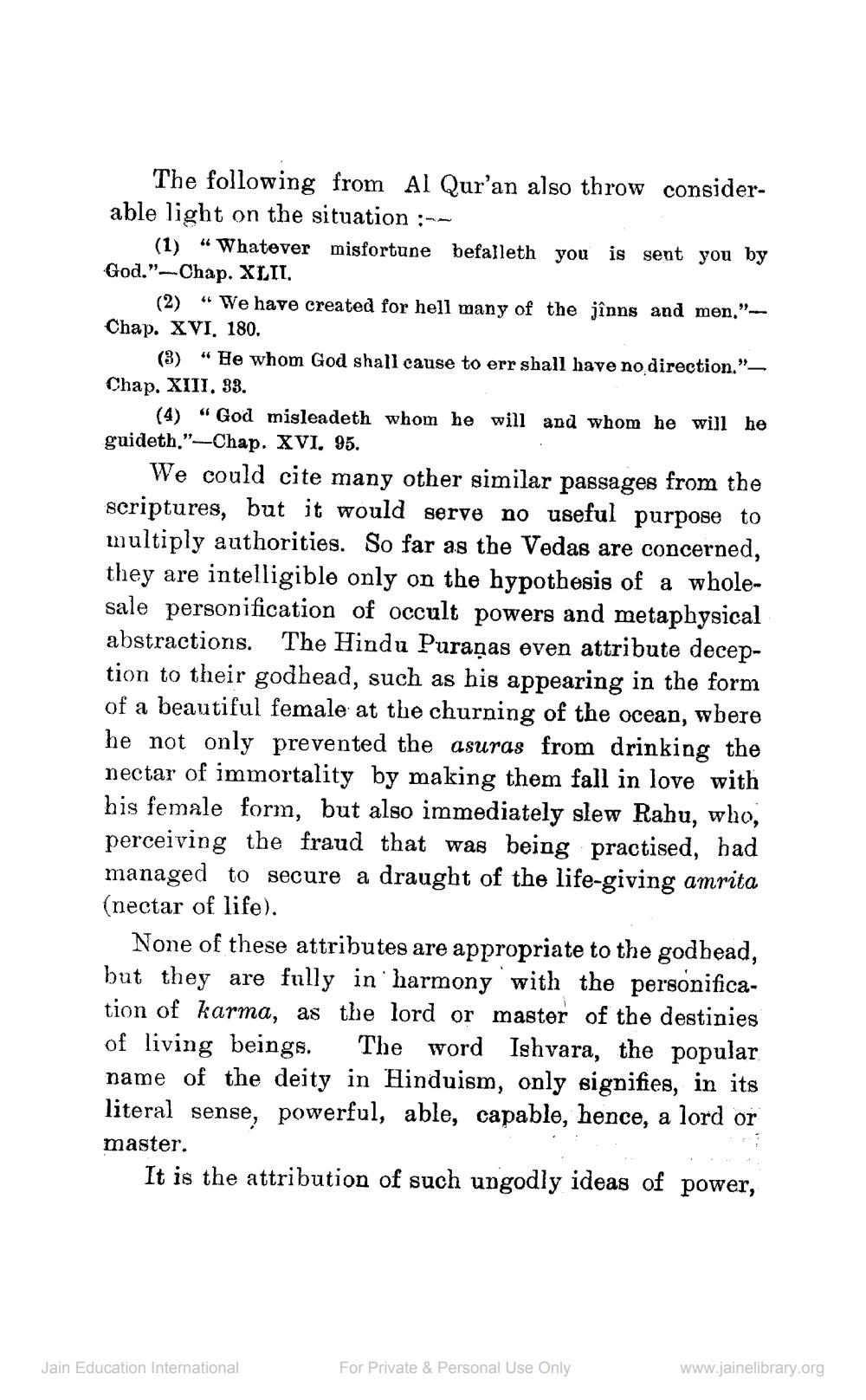________________
The following from Al Qur'an also throw considerable light on the situation :--
(1) “Whatever misfortune befalleth you is sent you by God." - Chap. XLII.
(2) “ We have created for hell many of the jînns and men."Chap. XVI, 180.
(3) “He whom God shall cause to err shall have no direction."Chap. XIII, 33.
(4) "God misleadeth whom he will and whom he will he guideth."-Chap. XVI, 95.
We could cite many other similar passages from the scriptures, but it would serve no useful purpose to multiply authorities. So far as the Vedas are concerned, they are intelligible only on the hypothesis of a wholesale personification of occult powers and metaphysical abstractions. The Hindu Puraņas even attribute deception to their godhead, such as his appearing in the form of a beautiful female at the churning of the ocean, wbere he not only prevented the asuras from drinking the nectar of immortality by making them fall in love with his female form, but also immediately slew Rahu, who, perceiving the fraud that was being practised, had managed to secure a draught of the life-giving amrita (nectar of life).
None of these attributes are appropriate to the godhead, but they are fully in harmony with the personification of karma, as the lord or master of the destinies of living beings. The word Ishvara, the popular name of the deity in Hinduism, only signifies, in its literal sense, powerful, able, capable, hence, a lord or master.
It is the attribution of such ungodly ideas of power,
For Private & Personal Use Only
www.jainelibrary.org
Jain Education International




